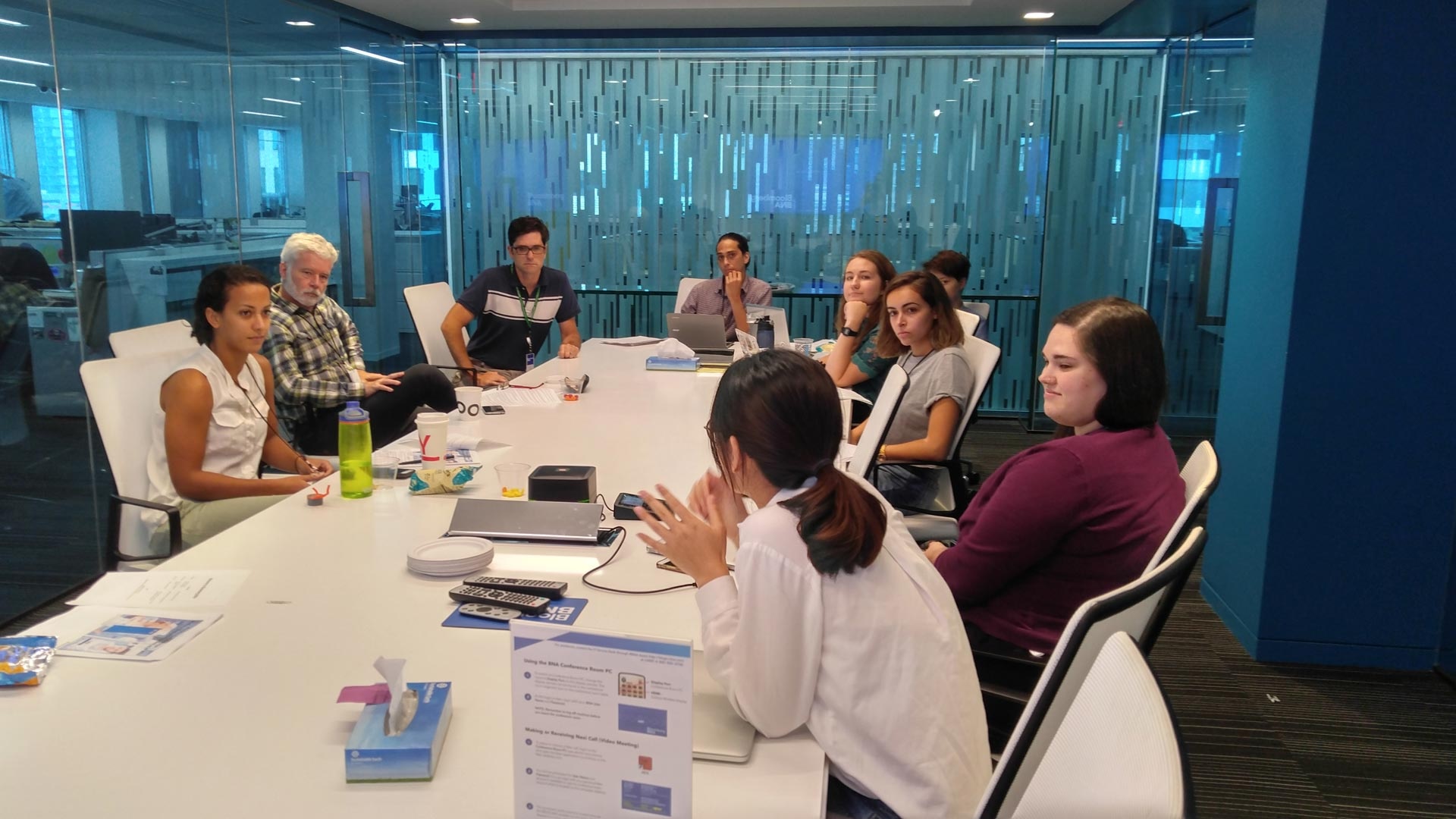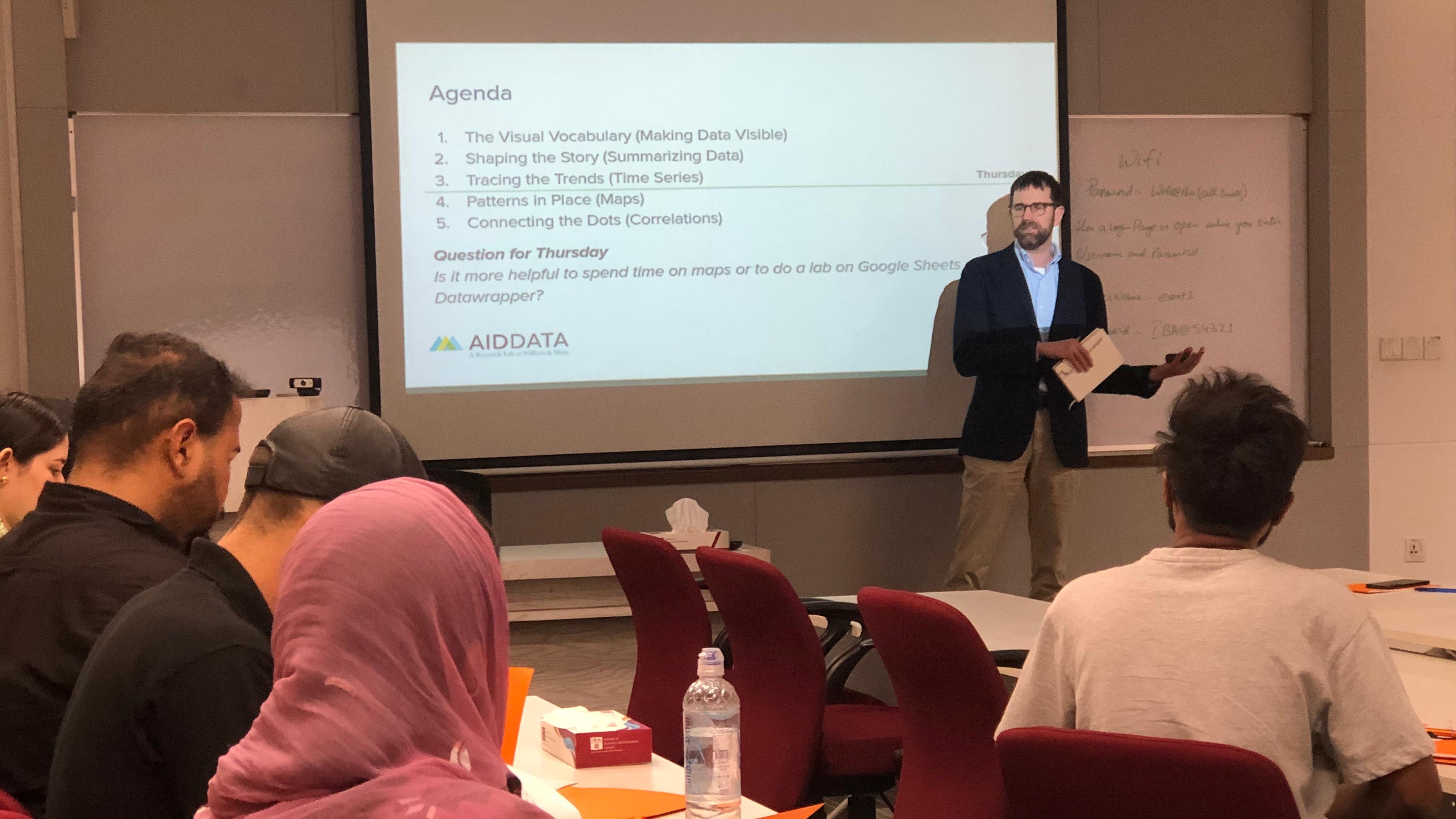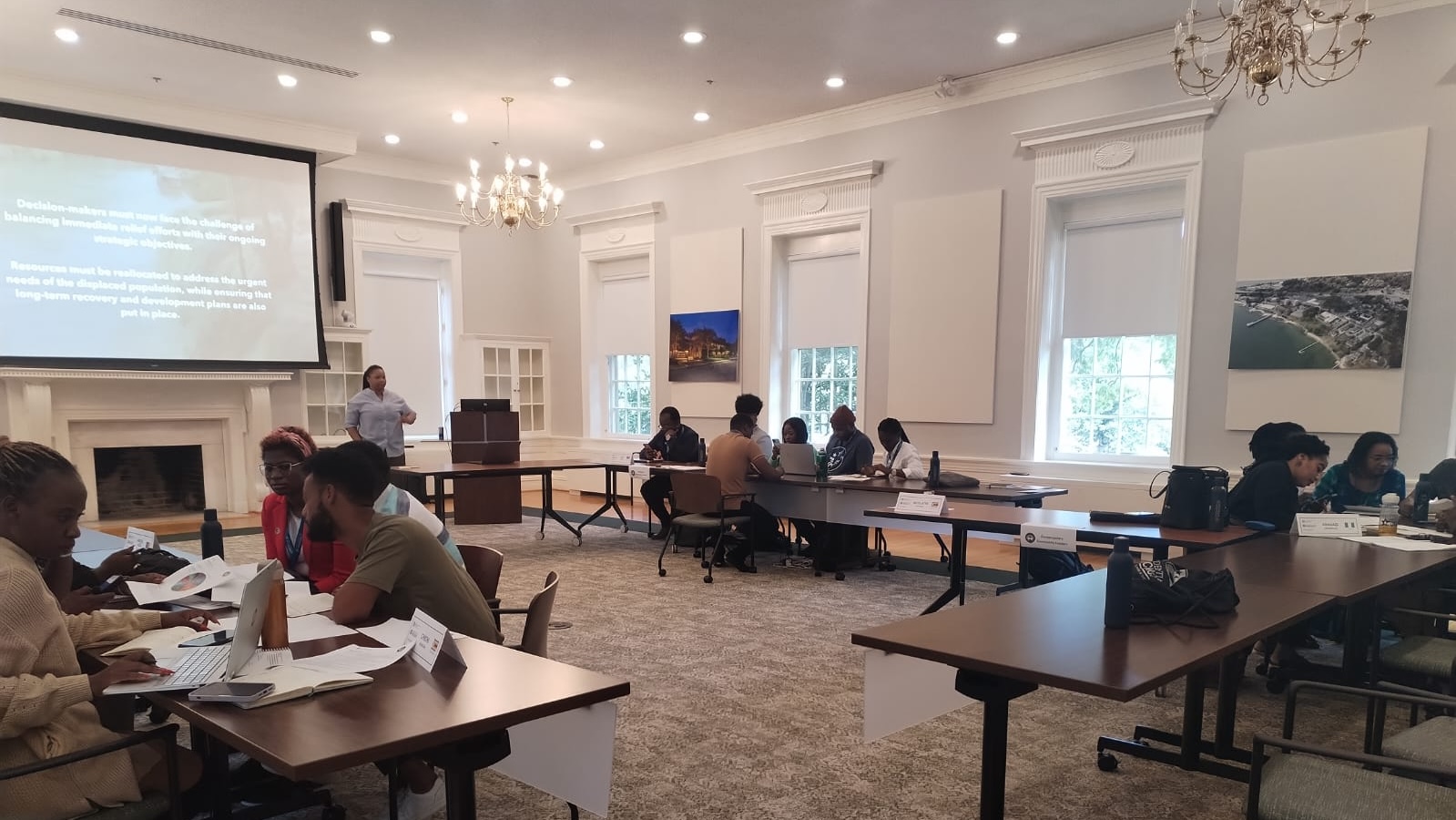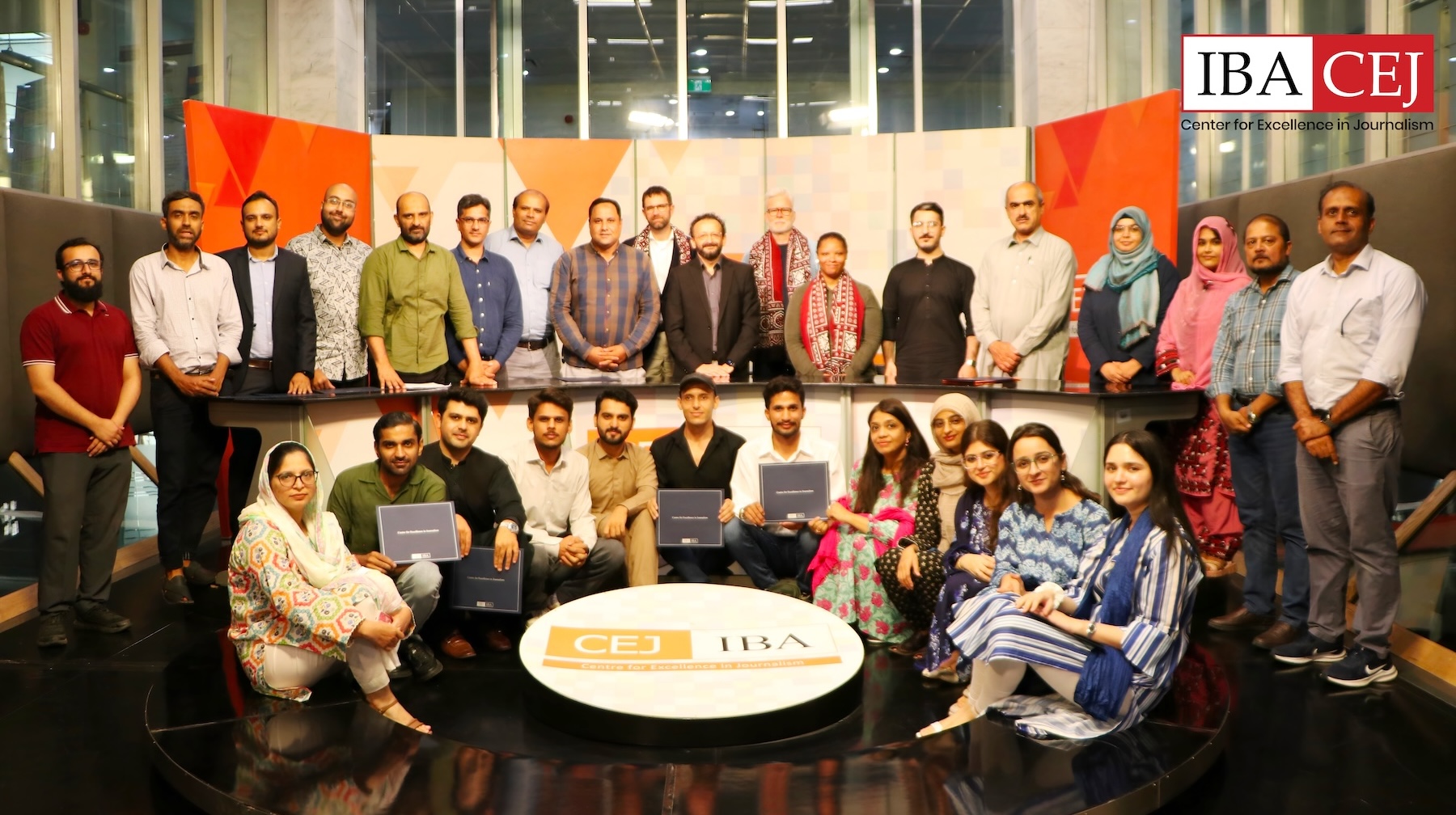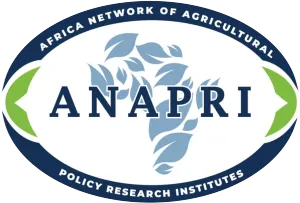Our training employs a hybrid (blended virtual and in-person) model that combines foundational online courses delivered through William & Mary’s Studio for Teaching & Learning Innovation with in-person workshops and policy dialogues. Our courses provide a flexible learning pathway and deep engagement with subject matter experts from around the world. In-person sessions are country- and region-specific for targeted professional development.
Aligned with AidData's commitment to actionable and evidence-based insights, as well as William & Mary’s over 300-year history as a premier university for learning and research, our courses blend academic research with practical methodologies. Tailored to address complex global challenges, the curriculum provides a comprehensive skillset for meaningful engagement with data, including verification, basic programming, analysis, and visualization.
Navigating global development finance
AidData's research on the global reach and impact of Chinese development finance is a go-to resource for the U.S. government, multilateral organizations, foundations, and the world's media. Journalists depend on the AidData team to contextualize and interpret complex datasets and underlying project information. AidData staff have taught data journalism as credit-bearing courses at the graduate and undergraduate level at William & Mary.
Building on this expertise, in July 2025, AidData staff co-led a week-long, in-person Economics and Data Journalism training course for Pakistani journalists, designed to enhance the quality of data-informed economics reporting by Pakistan’s media. Included in this training was "The Missing Classrooms," an innovative training simulation where participants explore and analyze data, experiencing real-world data-driven investigative work to uncover patterns and trends about a development program.
Expertise that empowers
AidData researchers have delivered customized learning experiences to policymakers, analysts, program managers, specialists, and development practitioners at a wide variety of public and private sector organizations.
